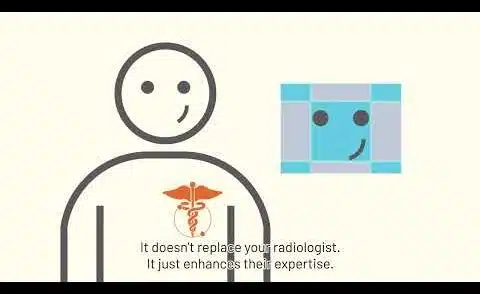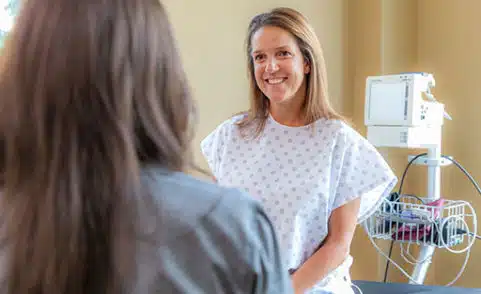
3 Questions to Ask Before Scheduling Your Next Mammogram
How do you know you’re getting the best care possible when it comes to your annual mammogram? You can’t be expected to have all the answers, which is why we turned to the experts in breast care health. We sat down with Dr. Paula George of Midwest Breast Care in St. Louis, MO and Carrie Riccobono, Clinical Nurse Specialist at Froedtert RAYUS Breast Care in Milwaukee, WI and asked them what they thought were the best questions for you to ask before scheduling your mammogram. Here are their Top 3 Questions – no matter if it’s your first mammogram or your tenth.
1. Is the center certified?
Many imaging centers perform various types of scans including mammograms, but to ensure you are going to a quality imaging center for your mammogram, it is important to ask if they are accredited by the American College of Radiology. There are several accreditations an imaging center may receive but the “cream of the crop” is the Breast Imaging Center of Excellence (BICOE) accreditation. To get any accreditation through the ACR, it is a rigorous process. But if a center receives BICOE accreditation, it means they are certified in mammography AND in breast MRI, breast ultrasound, stereotactic breast biopsy and ultrasound.
A center that goes through this accreditation process is committed to providing quality care in all facets of business. Staff qualification, equipment, quality control, quality assurance, MR safety policies and image quality are all peer reviewed by the ACR and the center is given constructive feedback in each area. Dr. George says this is important because it lets you know that the quality of care you’ll get is top priority at the center.
2. Do your radiologists specialize in breast health?
You go for your mammogram to catch cancer early. None of us wants to be in the position of having to go back in because the radiologist is unsure of something on the image and wants to do additional testing. At RAYUS, some of our facilities are dedicated to breast health. Our radiologists are also sub-specialized in breast imaging, which means they are reading thousands of images a year – all of breasts. Having sub-specialized radiologists who read a high volume of breast images can reduce misdiagnosis and the recall rate (the chance you’ll get called back for a second test).
Clinical Nurse Specialist Carrie Riccobono says that’s why you should seek out care at a provider like RAYUS, where sub-specialized radiologists are interpreting your scans. It’s the difference between having a radiologist who looks at the whole body and one that looks exclusively at breast scans. “You’re going to get someone who truly is the expert at looking at breasts,” says Carrie. Studies have shown that the more mammograms a radiologist reads a year, the higher your cancer detection rate will be and more than likely, the callback rate will be lower as well.
3. What happens if you see cancer?
At RAYUS, we believe that part of our job and our commitment to our patients is helping you navigate the next steps if breast cancer is detected. Carrie Riccobono helps breast patients navigate the health care system and says that patients who are supported through every step of their treatment have a higher 5-year survival rate. Our nurse navigators see this every day while working one-on-one with our patients, answering questions and being there every step of the way. This means from screening to diagnosis and through treatment – you have our support.
Our radiologists work closely with your primary care physician and oncologist, helping to determine the best course of action for you. Again, we know support after diagnosis has a profound impact on health after diagnosis.
Not all imaging centers are able to provide this level of support but this question is still important to ask. If they do not have a patient navigator, there are other resources for you, apart from your primary care physician or oncologist, if breast cancer has been detected. Find out more about getting the support you need from organizations like the National Breast Cancer Foundation (NBCF) which has a program to help you connect with resources in your area to guide you through diagnosis and treatment.
